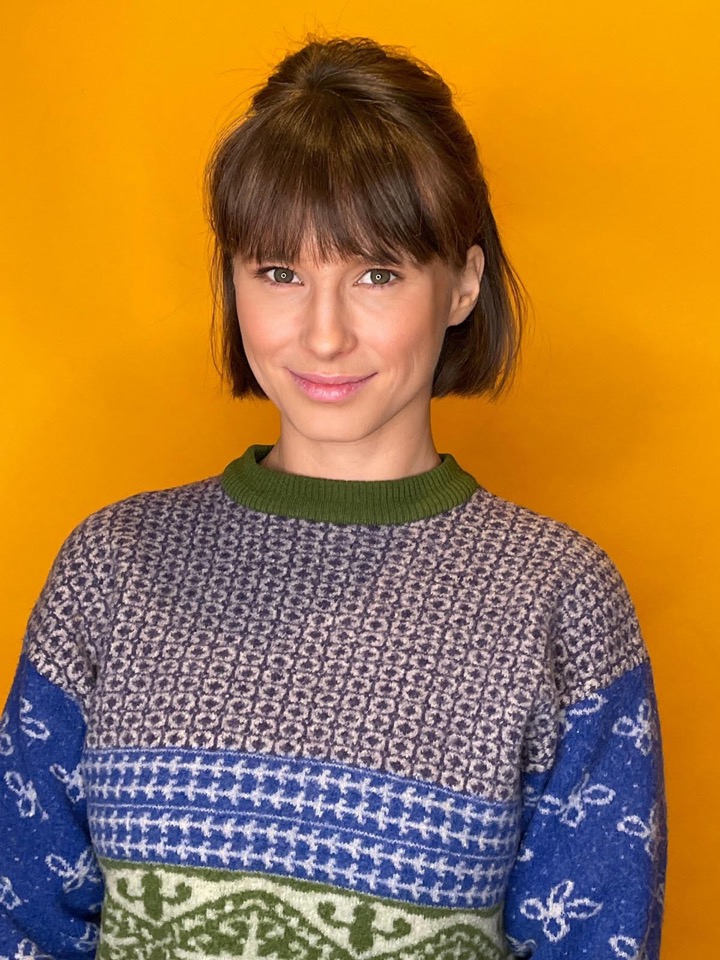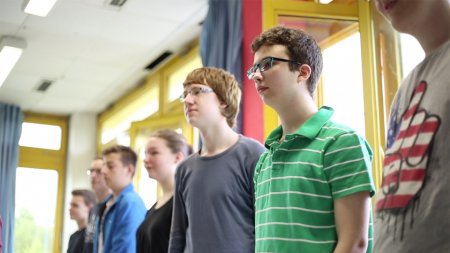THE LESSON is the personal journey of director Elena Horn who returns to her small hometown to follow four children as they experience Holocaust education in the public school system in rural Germany. The film is a window into deeply rooted social and political attitudes in Germany amidst the resurgence of the far-right, xenophobia and a fractured, disparate collective memory of the nation’s history. Younger generations of Germans lack basic factual knowledge of the subject, and are unintentionally taught to empathize with the fascist point of view through immersion exercises that reap the net effect of desensitizing young people to their nation’s dark history.
Films
THE LESSON
| Original Title | The Lesson |
| Category | Official Competition |
| Section | GEx Doc |
| Tipology | Documentary, Feature Film |
| Duration | 60' |
| Production Year | 2020 |
| Nationality | Germany, United Kingdom |
| Directed by | Elena Horn |
| Director of photography | Alessandro Leonardi |
| Editor | Alessandro Leonardi, Marc Recchia |
| Sound | Alessandro Leonardi |
| Music | Mattis Schaeffer |
| Produced by | Elena Horn, Alevtina Nepomniachtchikh |
| Production | Open Citadel (UK) |
 Elena Horn
Elena Horn
Elena is a young German filmmaker who started her career as a media psychologist researching the framing effects in the news coverage of the Iraq War in the US, Britain and Sweden. Today she is working as a story producer for the Guardian, ARTE, ZDF, Youtube Originals, SPIEGEL TV and the New York Times. Elena’s films focus on questions around education, migration, working culture, love and ethnic conflict, employing visual inspirations from the world of music and dance. As a director, Elena is a fellow of the Logan Non-Fiction Program in New York. Her short documentary PIZZA, DEMOCRACY AND THE LITTLE PRINCE, co-directed with Alessandro Leonardi, earned the Best Short Documentary Award 2019 at the Sedona Film Festival.
Director’s statement
“THE LESSON explores how German children that are coming of age are taught to deal with the nation’s Nazi past. In doing so, it reveals contradictions on the issue within the cultural landscape of modern-day Germany.
While the official state curriculum taught in schools vilifies Germany’s tragic past, one of my goals with the film was to conduct a firsthand case study of education in my hometown of Fröndenberg. I wanted to explore the reality of how this explosive topic is handled in practice, in classrooms inside Germany’s borders. What I found exposed an astonishing myriad of inconsistencies. I wanted to explore the resurgence of the far-right and xenophobia in politics and various subcultures, the fractured and disparate collective memory of National Socialism in Germany and the surprising lack of intimate knowledge or education of the younger generations on the subject. What I found was that even in a modern and developed state, the remnants of a shameful past still live on and shape the perception of younger generations. [...] Often, right extremism is framed as an East German problem but this story is set right in the heart of former West Germany. The film shows that Germany’s Holocaust education is unfit for our time. [...] My hope is that people who watch the film will understand the subtle ways in which fascism self-propagates and lingers within society, and that this understanding will inform and drive us to rectify the future.”
Produzione
festival contact
Open Citadelc(Regno Unito)
www.open-citadel.com






